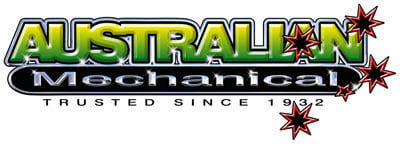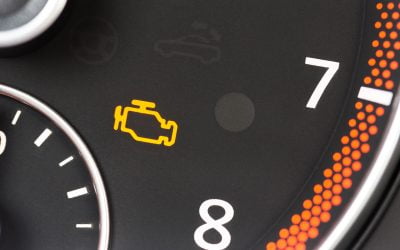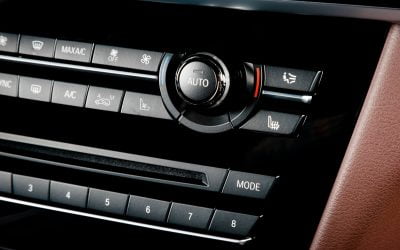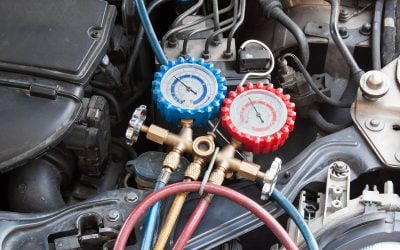Which Fuel Is Best For My Car?
What petrol should I use?
At the petrol station, there are a number of different types of fuel commonly available, although not every type is available at every pump. These fuels are usually classified by a RON number (e.g. 91, 95 & 98). Sometimes, they are classified using their ethanol content (e.g. E10 & E85).
Common fuels available at the local service station include:
- (E10)
- Standard Unleaded Petrol (91)
- Premium Unleaded Petrol (95)
- Premium Unleaded Petrol (98)
- Diesel
At some petrol stations you will also find these:
- E85
- Liquefied Petroleum Gas (LPG)
What is an RON number?
RON number stands for Research Octane Number, commonly referred to as an octane rating. The octane rating of a fuel determines its ability to resist pre-detonation. Pre-detonation is the combustion of the fuel in the engine’s cylinder/s before the spark plug ignites the fuel at the correct time. Pre-detonation can cause your engine to knock, damaging internal components such as bearings, pistons and connecting rods.
The higher the octane rating, the higher the stability of the petrol. Higher octane ratings allow the engine’s computer to run a more aggressive timing map. If a car tuned for RON 98 fuel were to use RON 91 fuel, it may run the risk of pre-detonation, causing damage to the engine.
What does the ethanol content mean?
The percentage of the fuel that is ethanol is the ethanol number found after the “E”. For example, E10 fuel is 10% ethanol and E85 is 85% ethanol. Most cars built after 1986 can run E10, unless they are carburetted. Ethanol naturally has a higher octane rating than petrol, making high ethanol blends (such as E85) a great option for performance vehicles. However E85 does have less energy by volume when compared to regular petrol, making it less fuel efficient. Ethanol is cheaper to produce and more sustainable than other fuel types.
Is premium fuel more efficient?
The short answer is: “it depends”.
In a non-performance vehicle, premium fuels are usually not going to lead to higher efficiency. In fact, premium fuels may actually be less efficient, as they may not combust 100%. This leads to additional unburnt fuel going out the exhaust instead of being turned into power.
In some newer performance vehicles, it can be safe to run lower RON fuels (however, check with your mechanic before changing fuel types). When the vehicle’s engine detects a lower RON fuel, it will slightly retard the engine’s timing to keep the engine safe from pre-detonation. This causes the engine to lose some of its power and efficiency, however it stops the engine from being damaged by a lower RON fuel.
Using the correct fuel for your car will allow the engine to run as efficiently as possible, increasing your mileage and power.
Which petrol should I choose?
Below is a quick description of each fuel and an indication of whether or not it may be right for your vehicle. Please note: check your owners manual, vehicle specifications or with your service technician, for the fuel recommended for your car.
- Standard Unleaded Petrol (91)
Standard unleaded petrol 91, is usually cheaper than all of the other unleaded petrol options. Most cars designed specifically for day to day commuting are designed to run on 91. Unless your car is performance oriented or your owner’s manual specifies using premium unleaded fuel, this option is likely fine to use for your car. - Premium Octane Unleaded Petrol (95)
Premium unleaded 95 is the middle of the road option for unleaded petrol. This is the entry level premium unleaded fuel and likely can be used if your vehicle specifies that it must use premium fuel. If your car specifies that it must use RON 98 fuel, using 95 may damage your engine or lead to less power and mileage. - Premium Octane Unleaded Petrol (98)
Premium unleaded 98 is specifically designed for high performance engines. If your car requires premium fuel, 98 will definitely work, and may provide you with increased performance and mileage over 95. Some vehicles must only use 98. - E10
Unlike the previous fuel types, E10 is a blend of unleaded petrol and 10% ethanol. This fuel type has a RON rating of 94; which is higher than standard ULP 91. This fuel has the added benefit of higher stability and a lower cost, however it is slightly less efficient than regular 91. If your car is specifically designed for day to day commuting and was produced after 1986, your car is a good candidate for E10. - E85
Another ethanol based option is E85. With it’s blend of 85% ethanol and 15% unleaded petrol, E85 is cheaper than 98 and has a higher RON rating of 105. E85 is often the fuel of choice for modified performance vehicles. It’s also a more environmentally friendly option, with the majority of ethanol fuel being produced by sustainable corn farms. While you may be tempted to put this fuel in your car, it may not be the best option for you. Flex-fuel cars usually can run E85, but it is unlikely that it will provide any performance benefits. While it is cheaper, E85 is less efficient, meaning that the saving at the pump is no benefit due to the low mileage provided. It’s also not available at many petrol stations, making it difficult to find. - Diesel
Diesel is a slightly different fuel type to unleaded petrol as discussed earlier. It is only compatible with diesel engines. Unless your car is specified as a diesel, your car will not run on diesel. Please note that putting petrol in a diesel engine can badly damage it. - Liquefied Petroleum Gas (LPG)
Liquefied petroleum gas (also known as LPG) is a gaseous fuel mainly composed of a butane and propane blend. LPG is more eco friendly than other fuel types, is generally about half the cost of premium petrol and has a higher RON rating of 110. However, not many cars use LPG. It requires a conversion (which can be costly), however not all vehicles are able to support a conversion due to conversion space requirements.
What about claims such as “Premium Fuel Will Clean Your Engine”
Petrol manufacturers do include additives in their premium fuels that help to clean carbon deposits and dirt in the engine. How well these additives really work is up for debate. If you are choosing to put 98 into your cheap commuter vehicle, the cost of the petrol will likely outweigh any potential benefits the premium fuel is giving you. A few different ways you can easily keep your vehicle’s engine from building up carbon deposits, dirt and other nasty items includes:
- Regularly replace your fuel filter
Your fuel filter works to keep gunk and dirt out of your engine, and should be replaced at regular intervals. - Don’t run your car all the way to empty
When you run your car to empty, all of the dirt in the fuel tank gets concentrated and sucked up by the fuel pump into the engine. Filling up with a quarter tank of fuel left is a good practice. - Regularly replace your oil
Oil is the lifeblood of your engine, lubricating and cleaning the engine and its many components. Replacing your oil and oil filter at the specified service interval helps to keep your engine healthy and free of deposits. - Ensure your fuel isn’t stale or contaminated
Fuel that has been sitting for a long time can become stale, leading to drivability issues and excessive carbon build ups. Fuel that has become contaminated (e.g. with water that has leaked into the fuel tank) can also cause similar issues. - Have your car regularly serviced by a mechanic
Not only will they replace your filters and oil, they can see if any other issues are leading to excessive build up (for example, a broken fuel pump or issues in the PCV system).
If you would like to book a service or chat to a qualified mechanic about the right petrol for your car, call the team at Australian Mechanical today on 07 3356 1538.
Read More Posts
My Check Engine Light Is On, What Do I Do?
If you’re driving your car and the check engine light suddenly pops up, it can be a bit of a scary experience.
How We Test Your Car Air Conditioning For Leaks
We use environmentally friendly leak detection methods to find & fix air conditioning leaks.
How To Tell if Your Car Aircon Needs a Regas
Is your car’s air conditioner not as cold as it used to be? Learn how to tell if your car aircon needs a regas.
Call us on 07 3356 1538
Book your next service or repair today and experience our honest, knowledgeable and friendly service.



